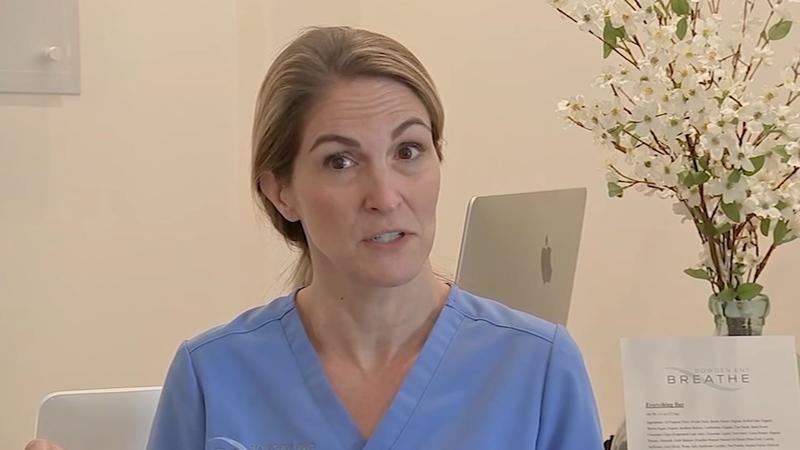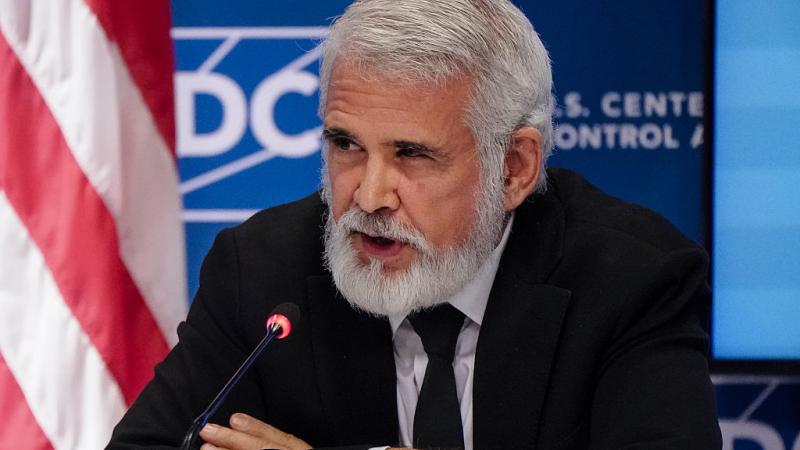Yale research validates spike protein persistence from COVID vaccines as injury visibility rises
Snopes tried to discredit research as a "rumor" when journalist received early results from conference call between researchers and study participants. Spike still detectable in some participants 600-700 days later.
If a writer for the Fox medical-mystery drama House had developed a plotline in which a nebulous illness credited to a novel virus turned out to be caused by the vaccine for the virus, it would have been deemed too cliched to make it out of the writers' room.
Sometimes reality is more banal than fiction.
Yale University immunobiologists concluded that COVID-19 vaccination is responsible for some cases of so-called long COVID purportedly caused by infection, adding a pharmacological wrinkle to earlier international research that attributed wearing higher-quality masks, loneliness and physical inactivity to symptoms mistaken for post-infection conditions.
But their Feb. 18 preprint research, not yet peer-reviewed, also found alarming levels of spike protein – the primary mechanism for mRNA COVID vaccines – in the blood of never-infected participants as long as nearly two years after inoculation, far longer than the eight weeks found in a 2022 peer-reviewed study.
Federal public health authorities long denied the vaccine-specific spike protein "lingers" in the body or is toxic, as a Food and Drug Administration spokesperson told the self-proclaimed fact-checker PolitiFact in summer 2023.
Months earlier, peer-reviewed research by Harvard Medical School identified spike proteins as responsible for post-vaccination myocarditis in young people.
"Labs have shown I continue to have high levels of spike protein in my blood, yet a negative nucleocapsid [antibody from the virus itself], which is a hallmark signature of this vaccine mRNA gene therapy," vaccine-injury victim Robert Fusaro told The New American in 2022.
Fusaro recently told Just the News how victims used code words to evade social media censorship in discussing vaccine injury.
Earlier this month, Senate Homeland Security Investigations Subcommittee Chair Ron Johnson, R-Wis., demanded Meta CEO Mark Zuckerberg turn over all records of Facebook's censorship of vaccine injury groups and even private messages, citing AstraZeneca trial victim Brianne Dressen – a coauthor of the new Yale study.
Podcast titan Joe Rogan's pre-election interview with then-vice presidential nominee JD Vance recirculated online this week, in which Vance said COVID vaccination made him "the sickest that I have been in the last 15 years," stuck in bed for two days with a racing heart, and "I've had COVID at this point five times."
While he said it wasn't a "serious injury," Vance marveled that "we're not even allowed to talk about that," while "the worst COVID experience I had was, like, a sinus infection."
X owner Elon Musk boosted the interview, saying his own COVID infection was "nothing" and his Johnson & Johnson adenovirus-based vaccine "hurt my arm" but "the mRNA booster hit extremely hard," nearly sending Musk, to the hospital with "massive chest pain."
The pileup of indisputable injuries from COVID vaccines comes as boosters retroactively distance themselves from previous mainstream narratives.
Asked by TV host Piers Morgan whether she feared "longer-term negative impact" of COVID vaccines, President Trump's first-term coronavirus response coordinator Deborah Birx said this week their one-size-fits-all rollout didn't follow science because mRNA vaccines were developed for people "at risk for severe disease" – older than 65 and with "significant comorbidities."
Birx waited more than a year after the widely observed phenomenon of breakthrough infections, when boosted President Biden got COVID yet again, to claim that she knew COVID vaccines wouldn't stop infection.
Last week, mRNA COVID vaccine maker Moderna told investors the FDA put its norovirus mRNA vaccine trial on hold – now in phase 3 and "fully enrolled in the Northern Hemisphere" – because of one reported case of Guillain-Barré syndrome.
A severe nerve condition developed by Rep. Debbie Dingell, D-Mich., following a mandatory swine flu vaccine, Guillain-Barré is also an unexpectedly common adverse event from adenovirus-based COVID vaccines and has cropped up in trials for Pfizer’s Abrysvo and GSK’s Arexvy RSV vaccines, Fierce Biotech reported.
The peer-reviewed but vaccine-skeptical International Journal of Vaccine Theory, Practice, and Research found "menstrual abnormalities strongly associated with proximity" to COVID-vaccinated individuals in December, which cardiologist Peter McCullough shared with Just the News, No Noise at the time.
"It's corroborated by multiple prior survey studies that suggested that indeed, shedding happens, whether that be the spike protein or messenger RNA," McCullough said. "I think it's more likely spike protein in exhaled exosomes that others breathe in. And the woman's menstrual cycle is one of the most sensitive biological processes we have."
Snopes, which also identifies as a fact-checker, tried to discredit the Yale research as a "rumor" after former New York Times drug industry reporter Alex Berenson shared the spike-protein results shortly before Christmas, two months before the preprint's release.
He said they came from a conference call between the researchers and participants in the Yale School of Medicine LISTEN Study, shared "independently" by a participant and "a scientist who is in contact with multiple members of the team."
Berenson emphasized the pedigree of lead author Akiko Iwasaki, a former president of the American Association of Immunologists who favored COVID vaccine mandates and had called safety concerns about mRNA vaccines "absurd" in 2021.
Former Senate Finance Committee investigator Paul Thacker contrasted the $1.6 billion the National Institutes of Health has poured into long COVID research compared to peanuts for vaccine victims, which he credited in part for presumed long COVID sufferer and Hollywood screenwriter Heidi Ferrer committing suicide.
Thacker posted a video he obtained from patient groups featuring Ferrer's husband, Nick Guthe, who blamed Moderna's COVID vaccine for sending his wife spiraling down, causing her to "develop tremors and then internal vibrations when she lay down for bed, so that even prescription sleeping pills would not allow her to sleep."
The science journalist gave a lengthy examination of the new paper contrasted with what he called "fake fact checks" in the media on the vaccine spike protein.
Now published with a full dataset, the Yale preprint's authors are largely from its Department of Immunobiology, Center for Infection and Immunity and School of Public Health. Non-Yalies include New York's Icahn School of Medicine and suburban D.C.'s Howard Hughes Medical Institute.
While it starts with the obligatory and unsourced assertion that "COVID-19 vaccines have prevented millions of COVID-19 deaths," the paper acknowledges "a small fraction of the population reports a chronic debilitating condition" known as post-vaccination syndrome.
They launched a "decentralized, cross-sectional study involving 42 PVS participants and 22 healthy controls" from the LISTEN study, collecting blood samples between December 2022 and November 2023. Half received Moderna's Spikevax and 14, Pfizer's Comirnaty.
The researchers found the PVS participants had different immune profiles, including "significantly higher" circulating spike protein compared to healthy controls, though the spike was found in "only a subset of participants with PVS at varying concentrations." Detectable spike was found from 26 to 709 days after the most recent known exposure.
"Notably, we observed that the highest levels of detectable S1 [spike] in the PVS-I [no history of infection] group were the furthest away from the last known exposure and ranging between greater than 600-700 days," which suggests "prolonged antigen persistence might be associated with PVS in a subgroup of patients," they wrote.
All but two PVS participants with infection history had breakthrough infections, "indicating that PVS symptoms started prior to infection."
"Given the striking similarities between long COVID and PVS symptoms, there has been speculation regarding the potential causal role of the persistent presence of spike protein driving the chronic symptoms," the paper says.
A writeup by Berenson translated some of the paper's jargon. PVS participants had low levels of "helper" CD4 T-cells and some of their CD8 "killer" T-cells showed immune "exhaustion."
While the researchers didn't have pre-jab T-cell data from participants, "so for now they cannot prove the jabs caused any immune dysfunction," Berenson said Pfizer and Moderna might have "sequential" T-cell data from their clinical trials that would enable study of "how T-cell levels in those patients have changed over time."
The Facts Inside Our Reporter's Notebook
Videos
Links
- wearing higher-quality masks
- loneliness and physical inactivity
- Feb. 18 preprint research, not yet peer-reviewed
- eight weeks found in a 2022 peer-reviewed study
- PolitiFact in summer 2023
- peer-reviewed research by Harvard Medical School
- The New American in 2022
- victims used code words to evade social media censorship
- Ron Johnson, R-Wis., demanded Meta CEO Mark Zuckerberg
- Joe Rogan's pre-election interview
- X owner Elon Musk boosted the interview
- Piers Morgan if she feared "longer-term negative impact"
- mRNA vaccines were developed for people "at risk for severe disease"
- she knew COVID vaccines wouldn't stop infection
- Moderna told investors the FDA put its norovirus mRNA vaccine trial
- common adverse event from adenovirus-based COVID vaccines
- Fierce Biotech
- International Journal of Vaccine Theory, Practice, and Research
- "menstrual abnormalities strongly associated with proximity"
- Peter McCullough shared with Just the News, No Noise
- Snopes
- Alex Berenson shared the spike-protein results
- Yale School of Medicine LISTEN Study
- Paul Thacker contrasted the $1.6 billion
- writeup by Berenson














